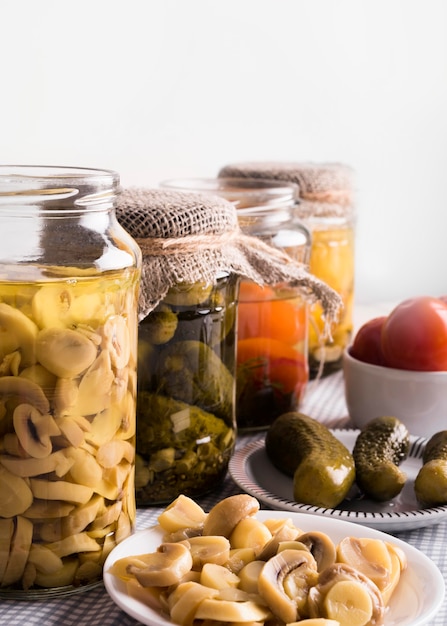
Fermented foods are becoming quite popular, but can they actually improve your health? Let’s see how.
Thirteen years ago, Donna Schwenk was 41 and pregnant with her third child when she developed preeclampsia. As her liver started failing, her baby, Holli, had to be delivered over seven weeks early, weighing just four pounds. Schwenk herself faced diabetes, high blood pressure, and severe fatigue, making it hard for her to care for her newborn.
Desperate for a solution, Schwenk came across a book on the benefits of kefir, a fermented milk drink. She began adding kefir to Holli’s bottles and the baby gained four pounds in a month. Schwenk also started drinking kefir, and within 12 weeks, her blood sugar and blood pressure were back to normal, and she felt healthier than ever.
Schwenk, who later wrote Cultured Food for Life, attributes her and her baby’s recovery to the fermented foods rich in beneficial bacteria. These foods can improve not just digestion, but also immunity, weight management, and even mood, according to recent research.
In the US, Schwenk appeared in a PBS special discussing research on the health benefits of fermented foods like kefir, yogurt, sauerkraut, and soy beans. This trend is gaining traction, with fermented foods being highlighted as future food trends.
Kimberly Snyder, an LA nutritionist for celebrities, also suggests that her clients eat fermented vegetables daily for better health and energy. Clinical nutritionist Kathie Swift echoes the importance of gut health. Her book, The Swift Diet, discusses how gut health impacts various health issues, from autoimmune diseases to mood problems.
Studies suggest that healthy gut bacteria not only aid digestion but also play a role in overall health, including weight loss, immunity, and mental health. Researchers have found connections between gut bacteria and stress reduction, further emphasizing the importance of a balanced gut microbiome.
The problem is, as we age, our gut’s balance of good and bad bacteria changes, partly due to diet, stress, and medications. This imbalance can lead to various health issues. Registered nutritional therapist Daniel O’Shaughnessy explains that bad bacteria thrive on refined carbs and sugar, contributing to gut problems.
While commercial probiotic drinks claim to help, they often contain too much sugar and transient bacteria that don’t colonize the gut effectively. Eating a variety of fermented foods can provide a range of beneficial bacteria needed for good health. Different fermented foods like kefir, sauerkraut, and kombucha contain different strains of bacteria, so incorporating a mix into your diet is ideal.
Fermented foods have been a part of cultures worldwide for centuries. They not only preserve food but also enhance its nutritional value. Japan, for instance, with its high life expectancy, includes many fermented foods in its diet.
However, introducing fermented foods should be done gradually to avoid digestive upset. It’s best to start with small amounts and increase slowly. Look for products with raw, live cultures, and if you’re up for it, making your own fermented foods is a simple and effective option.
Some commonly recommended fermented foods are:
– Kefir: A fermented milk drink easy to make at home.
– Miso: A soybean paste beneficial in soups or as a seasoning.
– Sauerkraut: Fermented cabbage that you can make by simply adding sea salt.
– Coconut yogurt: A dairy-free option high in good bacteria.
– Kombucha tea: A fermented tea available in health stores.
Including a variety of these foods in your daily diet can help maintain a healthy gut. Remember, moderation and variety are key to reaping the benefits of fermented foods without overwhelming your system.




